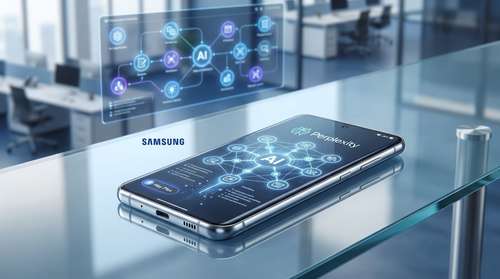Officials in Spain claim that the prime minister's and defense minister's cellphones were infected with Pegasus malware last year. The malware is exclusively available to government organizations, in an unauthorized operation.
Presidency Minister Félix Bolaos claimed in a hastily arranged press conference that Prime Minister Pedro Sánchez's phone was hacked twice in May 2021, and Defense Minister Margarita Robles' phone was hacked in the following month.
According to him, the breaches resulted in a significant amount of data being obtained, and that reports detailing the breaches have been transferred to Spain’s National Court for further investigation.
"There is no doubt that this is an unapproved, illegal intrusion," Bolaos added. "It emanates from outside state entities, and it was not authorized by the courts."
According to cybersecurity experts' group Citizen Lab, Spain's government is under pressure to explain why the cellphones of dozens of people related to the separatist movement in northeastern Catalonia were infected with Pegasus between 2017 and 2020.
What You Need to Know About Pegasus Spyware?
Security experts discovered evidence of attempted or successful Pegasus malware installations on 37 phones belonging to activists, rights workers, journalists, and businesses, according to security researchers.
They appear to have been under secret surveillance by software designed to assist governments in pursuing criminals and terrorists, and as the months pass, more and more Pegasus have been discovered.
The New Yorker reported that Spain has legal mechanisms in place to verify that such use is legitimate, but Citizen Lab stated Pegasus attacks targeted "members of the European Parliament, Catalan presidents, legislators, and jurists," as well as some family members. Catalonia is seeking political independence from Spain, but the movement has been suppressed by Spanish police.
Pegasus is the most recent evidence of how exposed we are to digital surveillance. Our phones store our most sensitive data, such as images, text messages, and emails. Spyware can see into our life directly, circumventing the encryption that secures data exchanged over the internet.
What exactly is the NSO Group?
It's an Israeli firm that sells surveillance software to government organizations. Because encryption technology has allowed criminals and terrorists to go "black," the business claims that its Pegasus software serves a crucial service. The program operates discreetly on cellphones, casting light on what their users are doing. Similar software is available from other firms.
In 2010, Hulio co-founded the company. Other NSO methods include finding where a phone is being used, defending against drones, and mining law enforcement data for patterns.
What exactly is Pegasus?
NSO's most well-known product is Pegasus. According to The Washington Post, it can be installed remotely without the monitoring target ever having to view a document or click on a website link. Text messages, images, emails, videos, and contact lists are all visible to the NSO clients who run Pegasus, and it can also record phone calls.
According to The Washington Post, it may also discreetly turn on a phone's microphone and cameras to make new recordings.
General security procedures like software updates and two-factor authentication can help keep mainstream hackers at away, but protection becomes extremely difficult when professional, well-funded attackers focus their resources on a single person.
Pegasus installations have also used "zero click" assaults to surreptitiously install malware by exploiting vulnerabilities in apps such as Apple Messages or Meta's WhatsApp.
What are the ramifications of the Pegasus incident?
The US dropped NSO Group as a customer of US goods, a significant decision considering that the company relies on US-made computer processors, phones, and developer tools. NSO "provided spyware to foreign governments," who then used it to target government officials, journalists, businesses, activists, academics, and embassy employees.
What is the position of NSO on this?
NSO recognizes that its software can be abused. According to The Washington Post, it has cut off two clients in the last year due to worries about human rights violations. "As a result of its human rights screening processes, NSO has rejected approximately $300 million in sales possibilities to date," the business noted in a June transparency report.
NSO, on the other hand, fiercely opposes any link to the phone number list. "The 50,000 numbers have no connection to NSO Group or Pegasus," the business claimed in a statement.
"Every allegation of system abuse concerns me," Hulio told the Washington Post. "It betrays the faith we place in our clients, and we are looking into every allegation."
NSO said in a statement that "false assertions" concerning Pegasus were "based on an erroneous interpretation of leaked material," and that Pegasus "cannot be utilized to conduct cyber surveillance within the United States."




